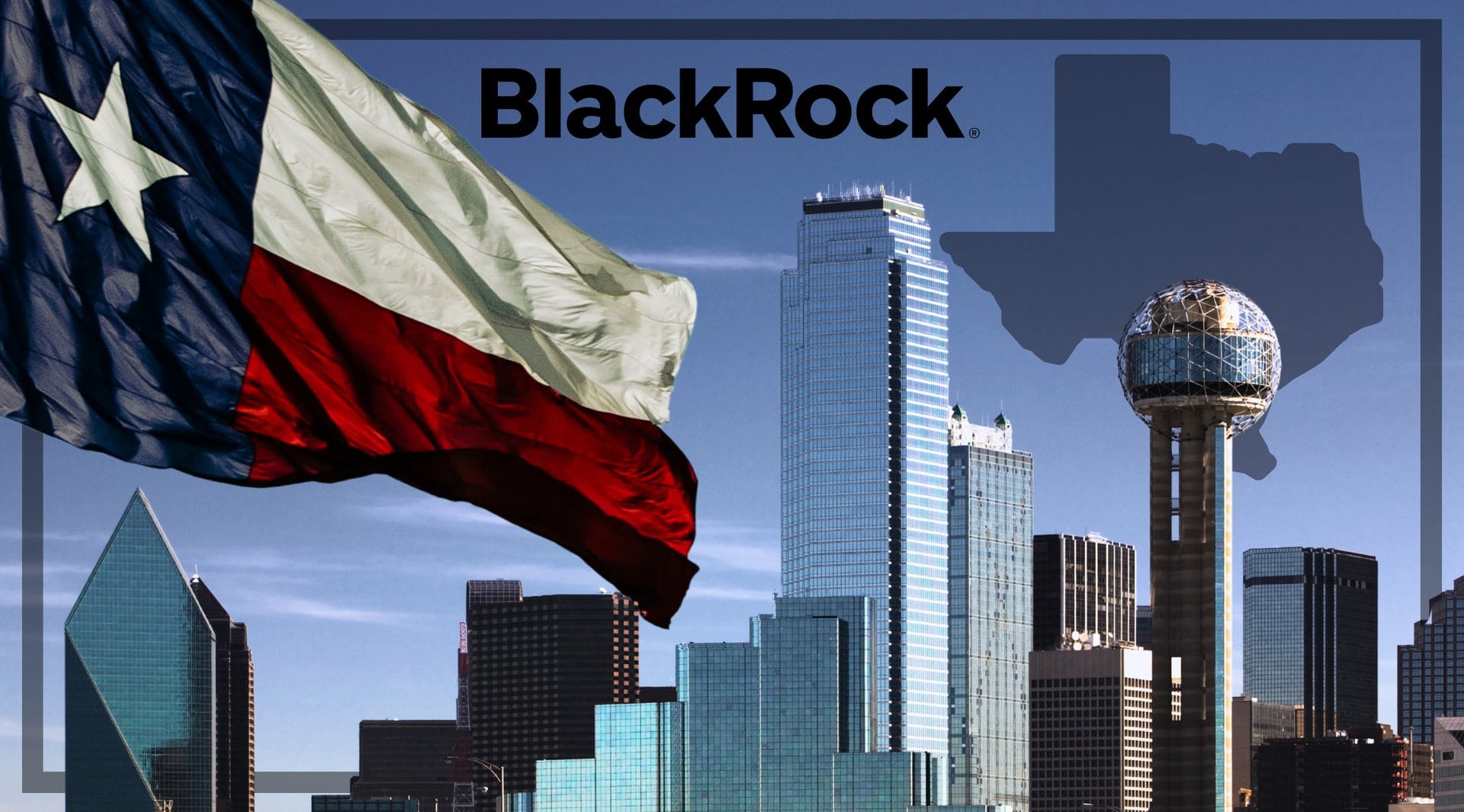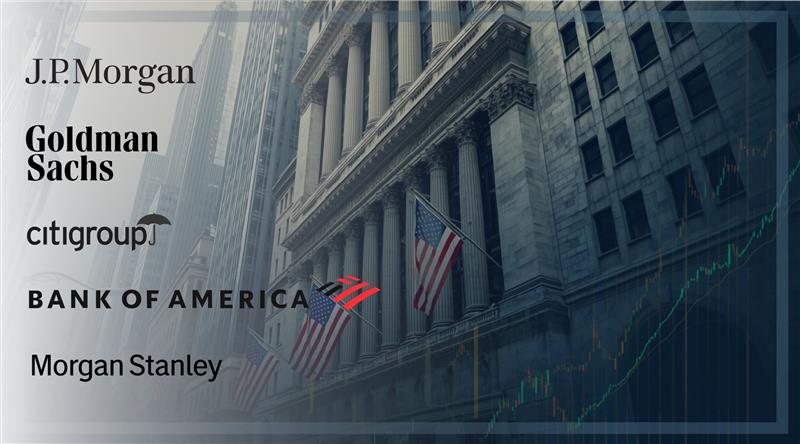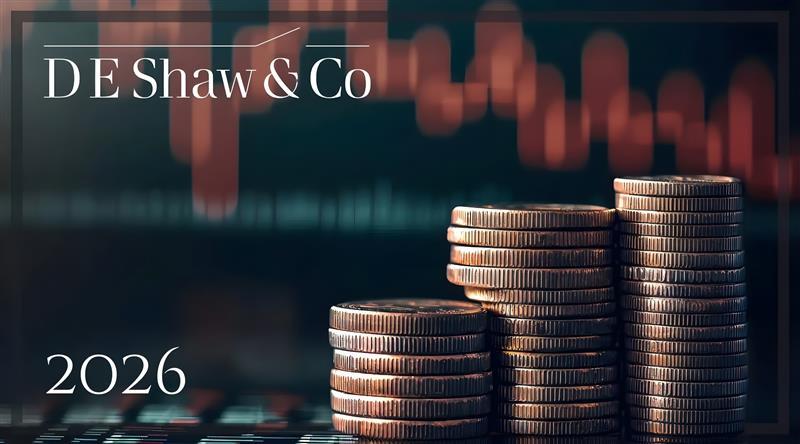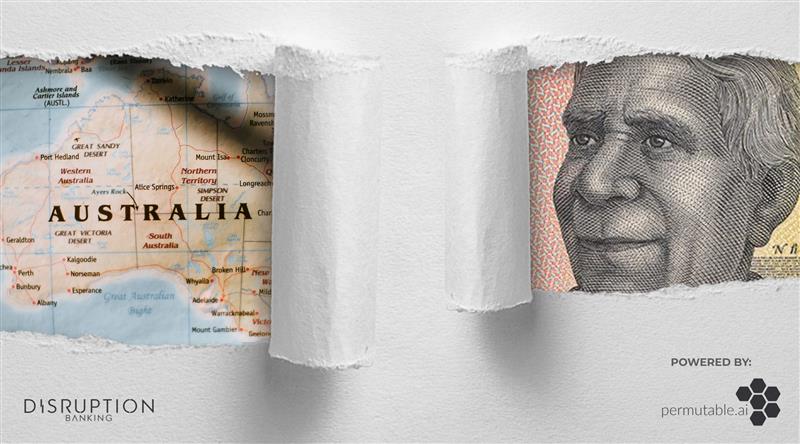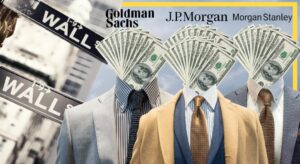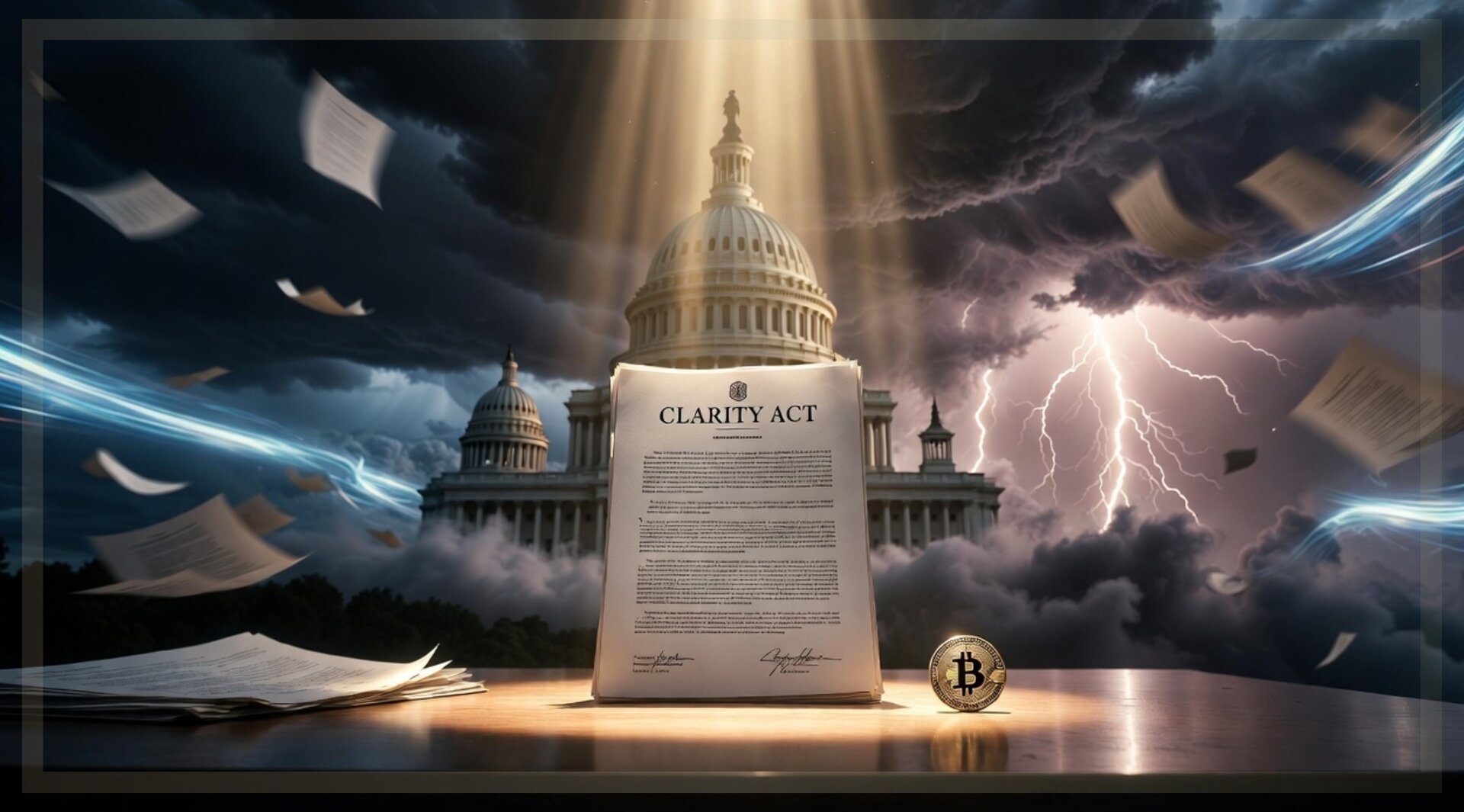We recently mentioned that BlackRock, State Street and Vanguard are not always viewed as entirely wholesome power brokers. The state of Texas appears to be courting the unlikely role of people’s hero after shining a light on some of the big three’s shadier practices, which its Attorney General has described as amounting to “cartel” behavior.
The Texas Attorney General’s Office successfully argued that the three asset managers were using their combined $20 trillion leverage to artificially inflate so-called dirty stocks that they had holdings in, and the US District Court for East Texas ruled in its favor on August 1.
Texas Takes Aim at Blackrock
Texas Attorney General Ken Paxton filed against BlackRock, State Street and Vanguard last year, accusing them of “conspiring to artificially constrict the market for coal.”
Doing so “increased prices and enabled the investment companies to produce extraordinary revenue gains,” Texas argued in November. It added: “This conspiracy violated multiple federal laws that prevent a major shareholder, or a group of shareholders, from using their shares to lessen competition or engaging in other anti-competitive schemes.”
Federal court records stated that the “defendants are three of the largest institutional investors in the world with billions of dollars invested in coal.”
🚨 A FEDERAL JUDGE in Texas just ruled that BlackRock,
— karma (@karma44921039) August 6, 2025
Vanguard, &
State Street
CAN BE SUED
for forming an INVESTMENT CARTEL
to CONTROL U.S. ENERGY MARKETS.
The lawsuit says they bought coal companies
just to shut them down,
forced green energy mandates,
jacked up prices, &… pic.twitter.com/Et85GDdaIE
BlackRock Digs Coal… Or Not
A federal court record filed in East Texas on August 1 says the asset trio “owns stock in nine publicly traded domestic coal producers […] Peabody Energy, Arch Resources, NACCO Industries, CONSOL Energy, Alpha Metallurgical Resources, Vistra Energy, Hallador Energy, Warrior Met Coal, and Black Hills Corporation.”
The federal court adds that between them BlackRock, State Street and Vanguard own around a third of the stock in seven of the companies and approximately a tenth of the remaining two. The lawsuit claims that the controlling interest was used as leverage against coal-mining companies in the name of environmental concerns, which Texas says are being used as a smokescreen for profiteering by the asset managers.
Per the federal court document, Texas’ case rests on the assertion that the “defendants have reaped the rewards of higher returns, higher fees, and higher profits, while American consumers have paid the price in higher utility bills and higher costs.”
BlackRock Caught Bang To Rights
The court further found that BlackRock, State Street and Vanguard “acquired significant amounts of stock in coal companies and then used their market power to pressure the companies to decrease coal production.”
The court adds: “Plaintiffs’ allegations […] include dozens of specific examples of Defendants’ conduct supporting their theory.”
If Texas is right – and the federal authorities appear to think it is – this is greenwashing at scale. For not only does it entail playing a double game, holding polluting stocks while simultaneously promoting cleaner sources of energy – something climate campaigners have taken BlackRock and its ilk to task for this year – it also involves using greenwashing as a way to boost profits on ‘dirty’ stocks. It might even be fair to say it’s the kind of move that redefines the word devious.
Lone Star Ranger to the Rescue?
The green lobby has therefore found an unlikely new ally in Texas – one of the most oil-and-gas-rich states in the world, it wouldn’t have been your top pick to take on greenwashing asset managers. But when those asset managers start driving energy bills up for its citizens, Texas suddenly starts to care.
Or does it? As we’ll see, getting to the bottom of this kind of legal dispute is like trying to swim in oil.
The Attorney General’s Office for the Lone Star state certainly seems confident in the righteousness of its cause. It hailed “a major victory against BlackRock, State Street, and Vanguard for conspiring to artificially manipulate the coal market through anti-competitive trade practices” in what Paxton called “an investment cartel to illegally control national energy markets and squeeze more money out of hardworking Americans.”
BREAKING: I just secured a major win against Blackrock, Vanguard, and State Street.
— Attorney General Ken Paxton (@KenPaxtonTX) August 1, 2025
These financial corporations created an investment cartel to illegally control national energy markets, and today's victory represents an important step in holding them accountable. pic.twitter.com/ggGMFUzux6
BlackRock the Bad Actor?
“We need to work for the long-term interest,” was BlackRock boss Lary Fink’s response to Texas back in November. But whose long-term interest precisely? Because, as Paxton successfully argued, higher energy bills and reduced returns arising from the big three’s strategy did not serve the interests of those who suffered as a result.
Federal district court judge Jeremy Kernodle has denied the trio’s motion to dismiss the charges, “allowing the litigation to continue under Texas and federal antitrust laws, as well as Texas’s consumer protection laws.”
Texas and a dozen other US states filed an amended complaint in January 2025 accusing BlackRock and its co-defendants State Street and Vanguard of violating these antitrust laws and effectively waging “war on competition” by using their stockholdings to “artificially constrain the supply of coal […] and increase energy prices for American consumers.”
Who Watches the Watchmen?
But all that said, who makes the environmental, social and governance (ESG) rules that are being invoked by both parties? A glance at S&P’s ESG ratings will reveal some pretty counterintuitive results. For instance, Tesla the ‘green’ electric car maker scores a lowly 31, but oil-polluting Exxon? Try 37. Presumably BlackRock and other asset managers are reliant on ratings agencies like S&P to decide who is environmentally friendly and worthy of investing in, and who isn’t.
That in turn begs the question: who sets the compliance rules and what kind of criteria do they use to decide who is eco-friendly and who isn’t? Or to put it another way, who watches the watchmen?
BlackRock, State Street, and Vanguard Lose Their Motion To Dismiss Federal Antitrust Lawsuit
— kristen shaughnessy (@kshaughnessy2) August 3, 2025
Texas Attorney General Ken Paxton accused " the three companies of forming an "investment cartel," with the intent to manipulate the national energy markets, particularly taking aim at… pic.twitter.com/bDpNSutb3b
Texas Lands Another Punch…
This consideration makes Texas’ follow-up argument against BlackRock all the more tricky to parse. One thing is clear: the August ruling means that BlackRock, State Street and Vanguard are in for a hell of a ride in the Lone Star state. Paxton and his office followed up their victory a week later with another salvo against what it called BlackRock’s “ESG agenda.”
Joining Texas to 18 other states, it signed a letter to Fink accusing BlackRock of putting ESG investing criteria above shareholder profits. Paxton argues that this will jeopardise the pension funds BlackRock is supposed to be looking after, and therefore, the interests of future pensioners.
That’s clearly aimed at Fink’s earlier claim that BlackRock was acting to serve the interests of the various funds with whose money it has been entrusted. Well over $10 trillion worth in the asset manager’s case.
“Our states will not idly stand for our pensioners’ retirements to be sacrificed for BlackRock’s climate agenda,” the letter says. “The time has come for BlackRock to come clean on whether it actually values our states’ most valuable stakeholders, our current and future retirees, or risk losses even more significant than those caused by BlackRock’s quixotic climate agenda.”
… But Was It Below the Belt?
Some would argue that this is too much. Exposing the likes of BlackRock for hypocrisy and double dealing is one thing, but to imply that the fight against climate change is a hoax is quite another – “quixotic” is a word that derives from the fictional character Don Quixote, who falsely believed himself to be a chivalrous knight and saw noble causes where none existed.
In fairness to Texas and its fellow plaintiffs, the letter stops just short of saying climate change isn’t real. Just. But it does clearly accuse BlackRock of pretending to be a hero when it isn’t: its eco-warrior status is quixotic, it says, and therefore fake.
And again, this brings up the question of ESG compliance. Perhaps Texas is right to cast doubt on the concept – Exxon being rated as more environmentally friendly than Tesla by a major ratings agency should be enough to raise eyebrows.
The world believes BlackRock, Vanguard, and State Street are “asset managers.”
— Lord Belgrave (@LordBelgrave) August 16, 2025
In truth, they formed the most powerful energy cartel in history, hiding under the ESG disguise.
This cartel triggered the very system designed to replace them: the XRP Ledger. 🧵 pic.twitter.com/FUAuTe685x
BlackRock Fight Equals Big Money
But perhaps Texas also needs to be careful here. Because its latest move risks weakening the State Attorney General’s arguments. No one seriously believes Texas is motivated by concern for the environment, but until recently it could justifiably claim to be acting on behalf of ordinary citizens struggling to pay their bills.
However, its latest attack on BlackRock’s ESG stance arguably makes the Texas Attorney General look like it’s really only motivated by protecting big-money investors. True, it can still claim to be championing the best interests of hardworking Americans who want to enjoy their future retirements.
But bear in mind that many institutions – including the other members of the big three, State Street and Vanguard – hold shares in BlackRock, as does BlackRock itself.
Texas: a Champion of Privilege?
The letter Texas signed told Fink: “BlackRock appears to use the hard-earned money of our states’ citizens to circumvent the best possible return on investment, as well as their vote.”
But again, which citizens, precisely? The ones wealthy or lucky enough to have a pension fund investing money on their behalf certainly – and, make no mistake, that will cover plenty of hard-working Texans. But unlike artificially hiked energy bills that affect everyone in the state, this doesn’t cover every hard-working Texan.
As at 2025, there are an estimated 841,000 residents of Texas who receive public sector pensions – a total of around $22.8 billion in state and local retirement plans. But here’s the kicker: research published this year by Pew suggests that more than half (53 percent) of Texas private-sector workers – about 5.7 million people – do not have a retirement plan through their employer.
Texas still has a legitimate case, but closer scrutiny reveals it isn’t quite as populist as some might have you believe.
REPORT: The WEF just investigated itself, cleared Klaus Schwab of all wrongdoing, and handed the reins of power to BlackRock’s Larry Fink.
— The Vigilant Fox 🦊 (@VigilantFox) August 20, 2025
BlackRock controls $10 trillion in assets—more than every nation on earth except the U.S. and China. And now its CEO, infamous for saying… pic.twitter.com/VSnHDC5rx9
BlackRock Better Watch Itself
All that said, Texas and its fellow states still present a compelling argument and are clearly well entrenched for the fight against BlackRock and the other asset management giants.
The letter to Fink, who has since been appointed interim co-chair of the World Economic Forum (WEF), argues: “BlackRock’s past public commitments indicate that it has used citizens’ assets to pressure companies to comply with international agreements such as the Paris Agreement that force the phase-out of fossil fuels, increase energy prices, drive inflation, and weaken the national security of the United States. These agreements have never been ratified by the United States Senate.”
Texas isn’t backing down, and it now has the ear of the federal government. BlackRock and its cronies wield enormous fiscal power. But they may well have met their match in the form of a tenacious Texan state that refuses to go away quietly.
#CapitalMarkets #ESG #regulator #AssetManagers
Author: Damien Black
The editorial team at #DisruptionBanking has taken all precautions to ensure that no persons or organizations have been adversely affected or offered any sort of financial advice in this article. This article is most definitely not financial advice.
See Also:
BlackRock, Vanguard and State Street: are Asset Managers Ready for Crypto? | Disruption Banking
Can the Texas Stock Exchange Disrupt Capital Markets? | Disruption Banking
What could the consequences of the RBC greenwashing case be? | Disruption Banking





